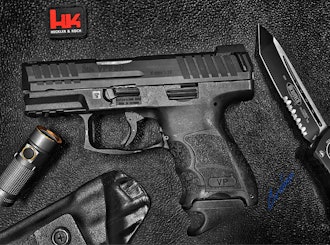Click to view our Accessibility Statement or contact us with accessibility-related questions












Showing 1 of 103 conversations about:
jodi_maloney
1
Oct 26, 2017
bookmark_border
What's the difference between the different type of materials for the Hario V60? Glass vs. plastic vs ceramic?

ZTFSub
12
Oct 26, 2017
bookmark_border
jodi_maloneyFunctionally there shouldn't be much of a difference. The choice is mostly an aesthetic one. Plastic is cheaper, but it will scratch and ding over time unlike the ceramic and glass ones. The glass separates from its handle so it can be more easily used in different stands. Potentially you could pre-heat ceramic and glass, but this likely wouldn't have much of an effect.
skal00
3
Oct 26, 2017
bookmark_border
jodi_maloneyThere's a slight difference in how easily these brewers heat up and retain their heat over time. Ceramic and glass will heat and cool more slowly than plastic. The most significant differences are in aesthetics and ease of cleaning. Plastic is always harder to completely remove residual coffee oils from than ceramic and glass, which are chemically inert. You might notice a slight plastic taste from the plastic brewer, but I have not used it so I cannot comment. Plastic is also probably harder to break if dropped, but I've had a ceramic v60 for 4+ years now, and it still works great.

djfluffkins
157
Oct 26, 2017
bookmark_border
skal00skal00 is right, the way heat is retained is the biggest problem (and conducted for that matter). So if you think about the biggest complaint about drip brewers that can't compete with the higher ends is the temperature at the brew-head. The goal being 195-205. The ceramic will take longer to heat but retain better, but if you don't heat it first it actually will cool your coffee down while you brew. Copper being the "gold" standard is because of it's high thermal conductivity which will help keep the brew closer to the temperature that your water is at.
I personally use the glass one because I didn't want to pay 2.5x for the copper, but if you gave me a good deal I'd switch in a heartbeat.
I personally use the glass one because I didn't want to pay 2.5x for the copper, but if you gave me a good deal I'd switch in a heartbeat.
WaltherC94
4
Oct 27, 2017
bookmark_border
I've actually never burned my fingers while doing that with a glass or ceramic V60. They probably do get hotter, but to me the main reasons for not using plastic is that unless you've used the dripper a lot already, plastics will vent that "plastic smell" which I believe to be VOCs, but I could be wrong. This effect is further exaggerated when the plastic is heated, which causes a sort of off-odor and off-taste to your coffee. But then again, I believe in pre-rinsing paper filters too, so if you don't usually pre-rinse your paper filters then maybe you won't notice this. I could be just extremely particular, or its a psychological thing.
Bat02
21
Jan 5, 2020
bookmark_border
djfluffkinsHuge misconception, because heat transfers, maintaining the correct temperature is better suited for plastic vs glass/ceramic/copper. Where the misconception originate: The big idea is that because heat can be transferred easily to those materials, they’ll get hot and won’t lose temperature as fast as the plastic one. The reality: plastic is less prone to heat exchange and it’s precisely why it’s better suited to keep a constant temperature.
in comparison, Copper/Ceramic/ Glass are slower to get to temperature than plastic and faster to cool down precisely because of their thermal transfer capabilities. Instead of trapping heat, they’re dissipating it. You can lookup a Reddit post making the comparison with actual measurement to back this up and it actually makes sense of you think about it.

djfluffkins
157
Jan 7, 2020
bookmark_border
Bat02I will say, in the years that have passed since the original post, I have learned a lot more about how thermal conductivity works (and how little I knew about it).
So I'll just start off by saying, the result is still the same but the justification is definitely different. This is because the actual experimentation that drove the conclusion was based on temperature logging at the the "brewhead" or at the end of the the V60. With the copper coming in at almost 7 degrees fahrenheit above the plastic temperature.
One thing I didn't mention in the original post is that we discovered that heating the copper V60 before starting the brew (the way it's recommended for glass and ceramic) produced some off flavors so we typically used room temp water to wet the filter instead of hot water.
That being said, what you posted about the misconception related to heat transfer and thermal conductivity is 100% correct. But I think the variation comes from the Specific Heat related to copper/aluminum/glass/etc vs plastic. If the amount of energy required to bring plastic to temp is significantly higher (which it is compared to copper) the retention benefits might only occur at thicker amounts of plastic heated to similar temperature (at the expense of more energy).
Related Posts

raulqr
Have had my chair for almost five years now. Holding up pretty good. But it needs a set of new wheels right away. Where can I get these?
Mar 27, 2024
Trending Posts in More Community Picks

Graham88
Completely surprised by the lack of blade diversity here on Drop...
I’ve been a collector of Blades since before my teens, and a retailer coming up on 15… or maybe 20 years. Drop has really been kind of an interesting experience for me, because I do occasionally get to see some unusual tech and sometimes EDC items that otherwise I might not have been aware of. And maybe it’s because I have a deep love of cutlery and bladed weapons, but I find myself trolling through the site looking at it what’s available; and it’s just it’s pretty much the same. And the bladed community here is just always confused me.. every single knife is about the same, they’re almost all drop points and although the handle materials change and brands change.. it’s really just the same knife over and over and over again... occasionally you’ll see a tanto or a slight variant; but rarely… and almost never a serrated blade. And I’m just deeply amazed at this diversion of serrated blades. And I’m just surprised there isn’t more of a request for diversity here.... and I...
Mar 12, 2020
JellyDPhoto
Can we get Sony E-Mount or other mirrorless camera options please..
Would be nice to see some Sony E mount full frame cameras on here. I currently shoot with a A99 and they killed the lense path for better or more option lenses and now is all E-Mount. 🤔
Jan 13, 2020
RayF
There Are Pandas, and Then There Are Pandas.
And this isn't either of them! The Pandas we're talking about here, are watches, not bears. And what got me thinking about them (again) was a link posted this morning by @cm.rook who pointed a few of us to the very attractive (and not terribly priced) Yema "Rallygraph" Panda which, in it's most traditional arrangement, looks like the one on the left, but can also be had in the version on the right: The model on the left is a true Panda, while the model on the right is called a reverse Panda. The reason for that distinction is clear--Panda bears, only come in the first arrangement. Now at this point, everyone should be thinking about the most well-know Panda, The Rolex Panda, which is actually a Daytona, and among Rolex Daytonas, the most famous of which is the Paul Newman Daytona, which was famous first, because it was Paul's, and second because it sold at auction for $17.8 million (US Dollars). The story of that auction is well-known so I'll only...
Nov 8, 2019





